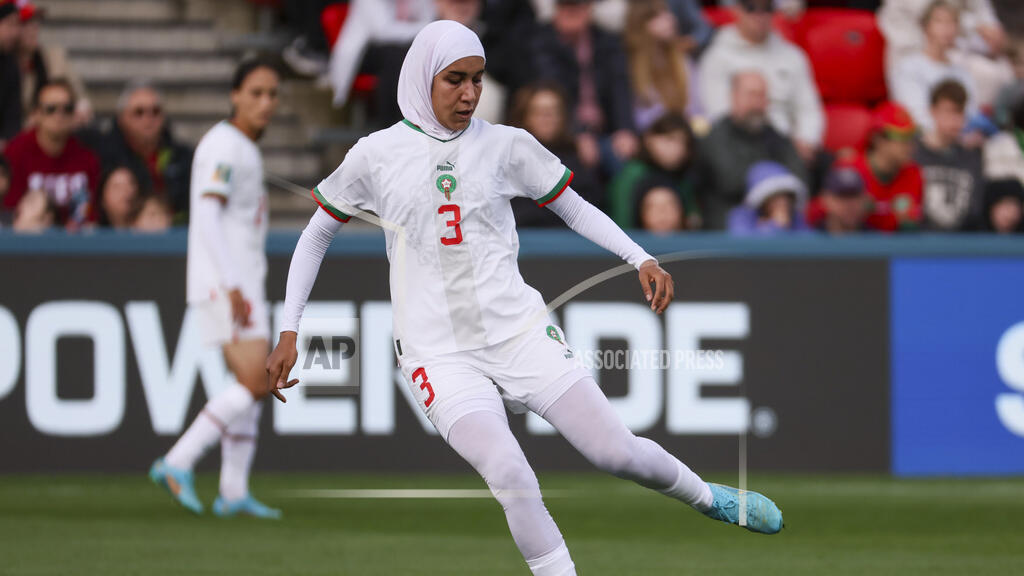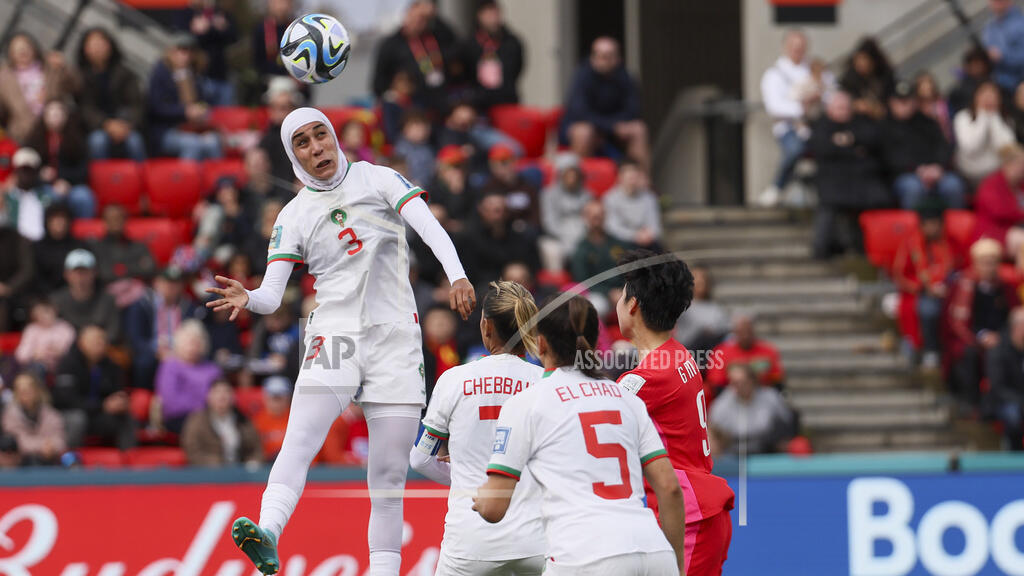Getting your Trinity Audio player ready...
Morocco's defender Nouhaila Benzina made history as the first player to wear a hijab while competing at the FIFA Women's World Cup.
Read more:
In 2014, FIFA lifted the ban on religious head coverings during its sanctioned games, citing "health and safety reasons." This decision came about after dedicated efforts from activists, athletes, government officials, and soccer governing bodies who advocated for the change.
In Adelaide, by the final whistle, the 25-year-old defender also played a crucial role in securing Atlas Lionesses' first-ever Women's World Cup victory with a 1-0 win. It was a historic moment for the team as they also scored their first goal at this level, providing them with genuine hope of qualifying for the knockout stage.
Prior to the championship, Benzina expressed her intention to wear a hijab, sharing the news on social media. In an interview with Al Jazeera, she expressed her pride in the upcoming moment.
“I have no doubt that more and more women and Muslim girls will look at Benzina and just really be inspired – not just the players, but I think decision-makers, coaches, other sports as well,” said Assmaah Helal, a co-founder of the Muslim Women in Sports Network.
Benzina plays professional club soccer for the Association’s Sports of Forces Armed Royal – the eight-time defending champion in Morocco’s top women’s league. She did not play in Morocco’s opening 6-0 loss to Germany in Melbourne and had to wait six days to finally get her start in the Group H games.
Morocco is the first Arab or North African nation to qualify for the Women’s World Cup.
“We are honored to be the first Arab country to take part in the Women’s World Cup,” Morocco captain Ghizlane Chebbak told reporters before the tournament, “and we feel that we have to shoulder a big responsibility to give a good image, to show the achievements the Moroccan team has made.”
Associated Press contributed to this article



